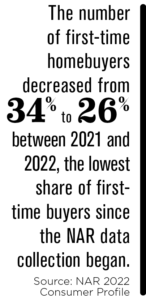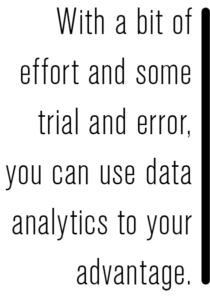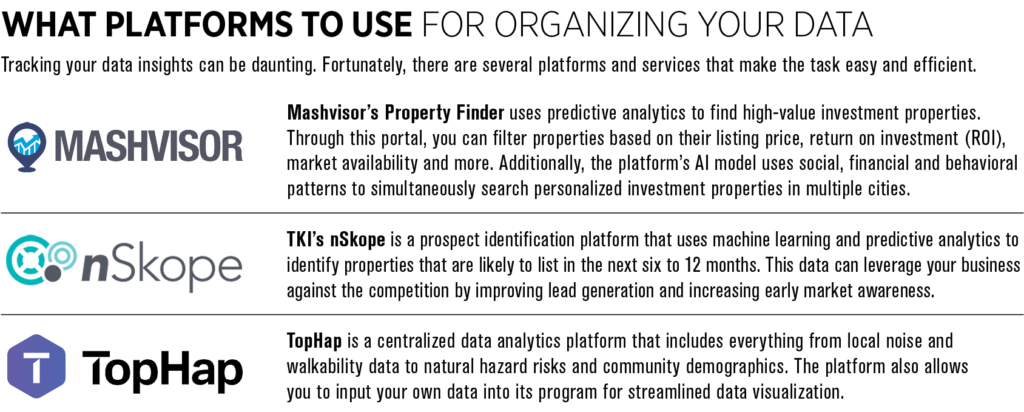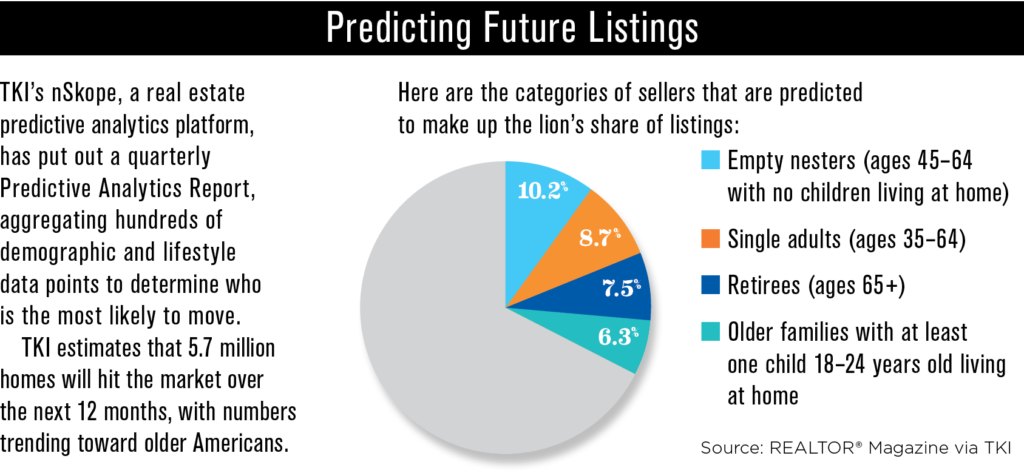The use of data analytics has taken the real estate industry by storm and has offered agents the ability to better track results
By Ellie Stimmel
Real estate is a dynamic industry that has been revolutionized by technology in recent years.
 One key piece of technology that the industry increasingly uses is data analytics, which helps agents gain insights into housing market trends, potential investment opportunities and efficiency improvements. These analytics can play a vital role in bringing your real estate business to the next level.
One key piece of technology that the industry increasingly uses is data analytics, which helps agents gain insights into housing market trends, potential investment opportunities and efficiency improvements. These analytics can play a vital role in bringing your real estate business to the next level.
What data points you should be tracking
When it comes to data analytics, there is a plethora of information available. Here are the key data points that you should be looking at.
Geographic data
Local geographic data can be invaluable for REALTORS®. From building history and zoning laws to crime rates and traffic trends, these analytics can predict the potential risks and benefits of investing in a property. Geographic data can also include information on topography and weather hazard forecasts.
Consumer demographics and behavior
In recent years, the real estate industry has experienced drastic shifts in consumer behaviors. Impacted by the pandemic and economic volatility, consumers have altered their financial decisions, including homebuying. Consumer behavior data can provide insight into consumer preferences, buyer personas and buying patterns. By collecting and analyzing data, real estate agents can better strategize marketing campaigns, identify potential leads and gain leverage against competitors.
Predictive analytics
Predictive analytics builds upon traditional industry analytics by predicting future market insights through AI and machine learning. Lead generation, property analysis and buyer and seller matching are all ways real estate agents use predictive analytics to grow their businesses.
Competitor analysis
As the real estate industry evolves alongside technology, it is important to be aware of your competitors’ resources and business strategies. Data surrounding the competition’s sales, marketing and services can be used to conduct a competitive audit and develop unique selling propositions to differentiate your business from the rest.
How to get started using data analytics
It’s never too late to begin using data analytics to improve your real estate strategy. While there is a learning curve to analyzing data, you can use these simple steps to get started and make the process less intimidating.

1. Develop a list of data you want to get information on and research the best sources. Real estate analytics can include everything from geographical topography to local school ratings, so it is important to list which data points you are prioritizing so you don’t get overwhelmed in the process. Regarding sourcing, look for reputable programs and platforms your peers use to get started.
2. Create a centralized data storage system. You can use traditional spreadsheet software such as Google Sheets and Microsoft Excel or digital software such as TopHap that automatically tracks your data. Organization is key, as it will ensure you can effectively use all the insights that you discover.
3. Analyze the data and draw insights from it. You can either find the raw data and develop these analyses yourself or use sophisticated online software to digest and outline data insights.
Despite the potential benefits of data-driven insights, some challenges may arise when getting started with data analytics. These include finding the right balance between collecting too much or too little data and ensuring that any processes used do not disrupt existing workflows. Additionally, it’s important to ensure data security and comply with any relevant privacy regulations. With a bit of effort and some trial and error, you can use data analytics to your advantage.

What the future of real estate analytics looks like
In order to keep up with the ever-evolving data analytics landscape, real estate professionals should stay informed about the latest developments and be open to trying new techniques and tools.
Developments in AI technology are pushing the boundaries of how data is used in real estate alongside traditional business methods. Specifically, predictive analytics allows real estate professionals to create more well-informed business plans based on economic and behavioral data.
In today’s real estate market, data analytics offers a competitive edge to those who use it effectively. As you navigate the ever-changing real estate landscape, consider incorporating these analytical tools into your business strategy to achieve success.

Uncover how to utilize data in your listing presentation in our course, Price It Like a Pro, at CRS.com/catalogsearch.
Photo: iStock.com/Baris-Ozer








